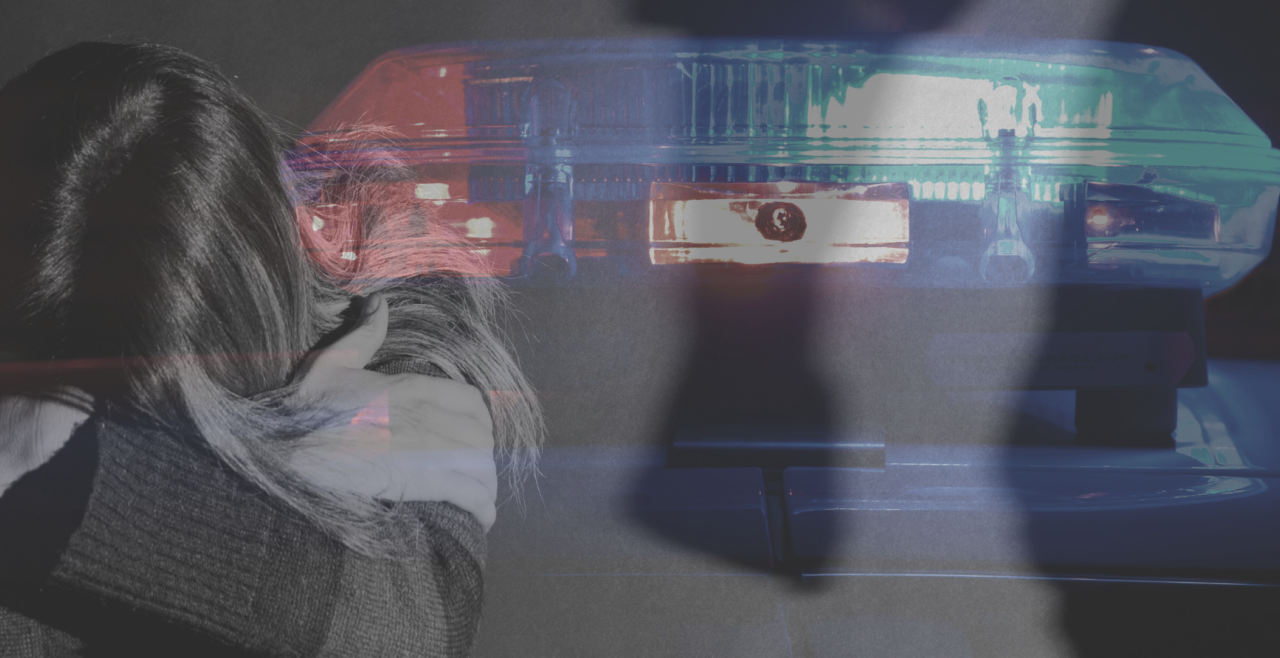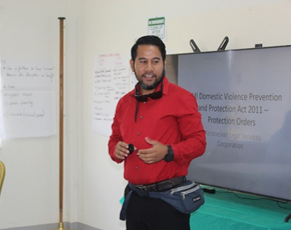Breaking the bias: Marshall Islands police officers learn how to better support survivors of violence

MAJURO, Marshall Islands - Junior*, a police officer in Wotje Atoll, hadn't given a lot of thought to how he interacted with women reporting violence. But his outlook changed dramatically after attending training on gender-based violence and domestic violence laws. The training, Weto in Mour (A Place of Life), was delivered by Spotlight Initiative grantee Women United Together Marshall Islands (WUTMI) and aimed to help police officers provide more gender-sensitive responses to women and girls.
“This training was sobering, I didn’t realize I was causing further harm when speaking with and tending to survivors of violence,” he said.
Police officers work at the frontline of gender-based violence response and providing a positive first experience is crucial for survivors navigating a complex justice system. This is especially true for marginalized women and girls, who are both more vulnerable to violence and less likely to report it.
“This training was sobering, I didn’t realise I was causing further harm when speaking with and tending to survivors of violence,” - Junior*, police officer, Wotje Atoll
Unconscious gender biases can affect first response and influence a survivor's ability to access services that are critical for their physical and mental health. Cases of sexual assault and intimate partner violence are particularly prone to police gender bias, which can result in failure to register a case according to procedure, shaming and blaming, or even accusing the victim/survivor of false reporting. Women and girls with disabilities are more likely to have their credibility questioned due to harmful stereotypes.
To address such biases, WUTMI has been training Marshall Islands Police Departments on how to take a survivor-centered approach, promoting positive masculinities and providing guidance on responding to violence against women and girls.
Fifteen police officers from across the Marshall Islands Police Department in the outer islands of Jaluit, Mejit, Wotje, and Majuro joined the training. WUTMI worked closely with each atoll’s mayor to have their police force commit to the training, and had mayors join sessions themselves to demonstrate strong political leadership and their commitment to stopping violence against women and girls.
The training increased officers' knowledge and understanding of gender-based violence and invited them to share their personal stories.
“I am thankful that I have learned so much from this training," said Tony*, a police officer from Jaluit. "I am so happy because now I will go back and start over... I will now unload this boat and separate the good and the bad. The good I keep, and the bad I will take out and set sail for a new journey.”
Another officer from Wotje said the training made him aware of serious flaws in his service to victims of violence. Having rethought his approach, the officer is now looking forward to making a difference in his atoll.
“Through this training, I have learned about the important role I play in ending violence against women and girls. I have a better understanding of domestic violence and gender-based violence.” - Police Officer Anitelu
“Through this training, I have learned about the important role I play in ending violence against women and girls," said Police Officer Anitelu. "I have a better understanding of domestic violence and gender-based violence. My mission is to first change my approach and the way I work, and then work towards changing the approach of my colleagues. I want to contribute to the community and end all forms of violence.”
The Spotlight Initiative is a global initiative of the United Nations which has received generous support from the European Union. Its aim is to eliminate all forms of violence against women and girls.
*Names have been changed to maintain confidentiality.
By Cristina Comunian

